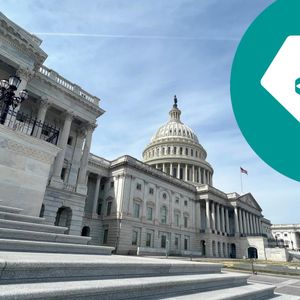AI Operating System Transforms Public Policy: Helios’s Visionary Proxi
7 min read
BitcoinWorld AI Operating System Transforms Public Policy: Helios’s Visionary Proxi In a world increasingly shaped by artificial intelligence, the impact of AI extends far beyond the tech industry, touching every sector, including the intricate realm of governance and public administration. For those keenly observing the intersection of technology and societal evolution, the emergence of a dedicated AI operating system for public policy professionals marks a significant milestone. Helios, a groundbreaking startup, is stepping into this crucial space, promising to bring AI-native efficiency to the complex processes of decision-making within government and large corporations. This development is particularly compelling for anyone interested in how advanced technology, much like blockchain in its transformative potential, can redefine traditional systems and foster unprecedented levels of operational intelligence. Pioneering the AI Operating System for Governance The genesis of Helios dates back to 2022, a period when OpenAI’s ChatGPT was capturing global attention. While the world marveled at generative AI, Joe Scheidler, co-founder and CEO of Helios, was deeply entrenched in a different kind of innovation: establishing the White House’s new cybersecurity office. His co-founder, Joseph Farsakh, was simultaneously navigating complex peace negotiations at the State Department. Their shared experiences in national security discussions sparked a pivotal question: How could large language models fundamentally transform the day-to-day work of public policy? Traditional public policy formulation, especially at the highest levels of government, often relies on a disparate collection of tools, spreadsheets, and invaluable institutional memory. Recognizing these inefficiencies, Scheidler and Farsakh envisioned a more cohesive approach. What if AI-native tools could be seamlessly integrated with a deep understanding of policy-making processes? This core idea led to the creation of Helios. To bring this vision to fruition, they enlisted Brandon Smith, a seasoned machine learning expert with experience at Microsoft and Datadog, to lead the technical development. Scheidler emphasized Helios’s unique position, stating, “Our unfair advantage is bringing a super unique blend of domain expertise, contacts, and technical expertise to a really important problem.” Helios, which recently emerged from stealth mode, secured an impressive $4 million in seed funding. This round was spearheaded by Unusual Ventures, with additional contributions from Founders Inc. and Alumni Ventures, a testament to the market’s belief in their innovative approach to a complex sector. Empowering Public Policy Professionals with Proxi Helios’s flagship offering, Proxi, is an advanced AI operating system specifically designed for professionals in public policy, regulatory affairs, legal, compliance, and government teams. While still in its beta phase, Proxi is already gaining significant traction. Early adopters include workers across federal, state, and local agencies, as well as professionals within Fortune 500 companies and dynamic startups. The ambition behind Proxi is comprehensive: “We wanted to empower all public policy, legal and compliance professionals with end-to-end automation,” Scheidler explained. This is achieved through “deploying a web of secure AI agents that are trained and fine-tuned against really robust public policy data sets.” These agents are engineered to support users across a spectrum of critical tasks, from strategic advisement to highly sensitive writing projects, complex data analysis, and intricate stakeholder mapping. Proxi’s design reflects a deep understanding of the challenges faced by policy professionals, offering features that directly address their daily needs: Consult: Described as a “conversational AI agent, your 24/7, always-on public policy team member who is constantly scanning the legislative and regulatory environment.” Users input details about their work, portfolio, focus, and objectives, allowing Consult to proactively surface crucial information every time they log in. This feature is akin to other AI platforms that monitor geopolitical and business risks, but with a specific focus on policy. Scribe: A collaborative AI editing and writing tool. Scribe helps policy professionals transform their brainstorming sessions with Consult into polished memos, official filings, and comprehensive policy documents, streamlining the drafting process. Decipher: A powerful large-scale data analysis tool. Decipher excels at parsing lengthy bills, detailed reports, and complex filings, converting them into structured insights and critical risk alerts. Scheidler noted that this feature addresses a significant pain point he experienced firsthand: “That’s a lot of what I spent my time doing at the State Department when I would have far preferred to just be on the Hill, building relationships with people who are actually making draft amendments and provisions.” CRM: A robust customer relationship management tool tailored for policy professionals. It enables users to visually map out their stakeholder environment, track interaction history, and manage meeting notes, ensuring comprehensive relationship management. Helios prioritizes security, employing top encryption standards for its federal clients and actively undergoing rigorous compliance audits. This commitment ensures that sensitive government data remains protected within the AI operating system . How Government AI is Streamlining Operations The integration of advanced AI tools into government operations is not just about automation; it’s about fundamentally enhancing efficiency, accuracy, and strategic foresight. Helios’s Proxi exemplifies this shift by providing an all-in-one solution that addresses the multifaceted needs of public sector professionals. By automating routine, time-consuming tasks, it frees up valuable human capital to focus on higher-level strategic initiatives and direct engagement. The adoption of such specialized government AI platforms can lead to several transformative benefits: Enhanced Decision-Making: By providing real-time legislative and regulatory intelligence, Proxi ensures that decisions are informed by the most current and relevant data. Increased Productivity: Automation of document drafting, data analysis, and stakeholder tracking significantly reduces manual workload, allowing professionals to accomplish more in less time. Improved Collaboration: The collaborative nature of tools like Scribe fosters better teamwork among policy professionals, ensuring consistency and quality in output. Risk Mitigation: Decipher’s ability to quickly identify and alert users to risks embedded in complex documents helps proactive policy adjustments and compliance. Strategic Engagement: With more time saved on administrative tasks, professionals can dedicate more effort to building relationships and engaging directly with stakeholders, leading to more effective policy outcomes. Helios’s early traction across various levels of government and corporate sectors indicates a clear demand for intelligent, integrated solutions that can navigate the complexities of public policy. The company’s focus on meticulous feedback from early beta users demonstrates a commitment to refining Proxi to meet the exact needs of its specialized user base, ensuring that the AI operating system truly delivers on its promise. The Core AI Tools Driving Proxi’s Innovation The strength of Helios’s Proxi lies in its carefully crafted suite of AI tools , each designed to address specific pain points within the public policy workflow. These tools are not merely standalone applications but integrate seamlessly to form a comprehensive AI operating system . The underlying technology leverages large language models, fine-tuned with extensive public policy datasets, to deliver highly relevant and accurate outputs. The “Consult” feature, for instance, acts as an always-on legislative and regulatory radar. Imagine having a team member constantly scanning new bills, proposed regulations, and policy shifts across all levels of government, and then distilling that information into actionable insights tailored to your specific portfolio. This proactive intelligence is invaluable for staying ahead in a rapidly changing policy landscape. “Scribe” transforms the often tedious process of document creation. From initial soundboarding to final memos and filings, the AI assists in structuring arguments, refining language, and ensuring compliance with official formats. This collaborative writing tool not only saves time but also enhances the quality and consistency of policy documents. “Decipher” tackles the monumental challenge of data overload. Public policy involves sifting through vast quantities of text – lengthy bills, detailed reports, and complex legal filings. Decipher’s AI-powered analysis can quickly parse these documents, identify key provisions, extract critical data points, and flag potential risks or opportunities that might be missed by manual review. This capability is a game-changer for due diligence and strategic planning. Finally, the integrated CRM tool provides a centralized hub for stakeholder management. In policy, relationships are paramount. This tool helps professionals visually map their network, track every interaction, and store crucial meeting notes, ensuring that no relationship or piece of information falls through the cracks. This holistic approach to managing policy interactions underscores Helios’s understanding of the sector’s unique demands, making it a truly comprehensive AI operating system . The Future Vision of Helios AI and Beyond With its recent $4 million seed funding, Helios is poised for significant growth. The immediate plan is to expand its product and engineering teams, prioritizing the recruitment of top-tier tech talent. Scheidler emphasized that the startup is not rushing to monetize, but rather focusing on building long-term business relationships and gathering meticulous feedback from its early beta users. This strategic patience aims to ensure Proxi evolves into the most robust and indispensable AI operating system for its target market. Helios harbors ambitious long-term goals. “Our goal in five to seven years from now is for Helios to be completely synonymous with all government public and private interaction,” Scheidler stated. This vision positions Helios to move beyond current competitors like Bloomberg Government and Fiscal Note Forum, setting its sights on challenging established giants such as Palantir, OpenGov, and Civica. The market potential is undeniable. “Palantir just surpassed a $300 billion market cap,” Scheidler noted, highlighting the immense room for innovation and growth in this specialized sector. Helios’s unique blend of deep domain expertise in public policy, extensive industry contacts, and cutting-edge technical capabilities positions it as a formidable contender. By focusing on creating an intuitive, secure, and powerful Helios AI platform, the company aims to redefine how public policy is shaped, analyzed, and executed, promising a future where AI empowers more informed and efficient governance. To learn more about the latest AI market trends, explore our article on key developments shaping AI models and their institutional adoption. This post AI Operating System Transforms Public Policy: Helios’s Visionary Proxi first appeared on BitcoinWorld and is written by Editorial Team

Source: Bitcoin World



